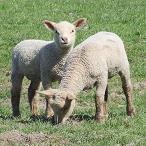"I am the good shepherd" saying of Jesus in the Gospel of John
Jesus Christ's "I am the good shepherd" metaphorical statement about himself in the Gospel of John has very significant corresponding details
in the life and family of Judah, and a corresponding "sign" (miracle).
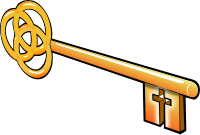
Clip art source: www.ChristArt.com
Verily, verily, I say unto you, He that entereth not by the door into the sheepfold, but climbeth up some other way, the same is a thief
and a robber. But he that entereth in by the door is the shepherd of the sheep. John 10:1-2
"I am the good shepherd" statement of Jesus in the Gospel of John:
 I am the good shepherd: the good shepherd giveth his life for the
sheep. But he that is an hireling, and not the shepherd, whose own the sheep are not, seeth the wolf coming, and leaveth the sheep, and fleeth: and the wolf
catcheth them, and scattereth the sheep. The hireling fleeth, because he is an hireling, and careth not for the sheep.
I am the good shepherd: the good shepherd giveth his life for the
sheep. But he that is an hireling, and not the shepherd, whose own the sheep are not, seeth the wolf coming, and leaveth the sheep, and fleeth: and the wolf
catcheth them, and scattereth the sheep. The hireling fleeth, because he is an hireling, and careth not for the sheep.
I am the good shepherd, and know my sheep, and am known of mine. As the Father knoweth me, even so know I the Father: and I lay down my life for the sheep. John 10:11-15
Jesus said that the person who enters the sheep pen through the door is the shepherd of the sheep, and a thief enters "some other way." Then, on the evening after his resurrection from the
dead, Jesus entered a room "some other way," as if he were a thief. Eight days later, he did the same thing again.
John 20:19-29
Why did he do what he said a thief would do? The answer is in the name Thomas, which points to Judah's offer to become a "thief" in place of Benjamin. That
is what this web page is all about.
Corresponding details in the life of Judah and his family:
In the Old Testament, in the book of Genesis, there are two sets of twins, Jacob and Esau, and Jacob's grandsons, Perez and Zerah.
Genesis 25:24-26, 38:27-30
Judah, the son of Jacob, is the father of Perez and Zerah, and therefore is surrounded by twins in the family tree.
Both sets of twins are known for switching roles, the younger taking the role of the older, and vice versa. Jacob, the younger twin, obtained the birthright and blessing that should have gone to Esau, the older twin.
Perez and Zerah switched places as they were being born, so the birthright that should have gone to the "older" twin must have gone to the "younger" twin.
Genesis 27:30-36, 38:27-30
Two brothers, Ephraim and Manasseh, are switched in a similar manner as the two sets of twins above, so that the blessing that had been expected to go to the older brother went to the younger brother instead.
Ephraim and Manessah are also grandsons of Jacob, and Joseph, the son of Jacob, is the father of Ephraim and Manasseh.
Thus, both Judah and Joseph are surrounded by role switching pairs of brothers in the family tree.
Genesis 48:13-20
Not only are Judah and Joseph surrounded by role switching pairs of brothers, but their respective mothers, Leah and Rachel, are sisters
who switched roles with each other, since their father Laban substituted Leah for Rachel on what was supposed to have been Jacob and Rachel's wedding night.
Genesis 29:21-28
Judah and Joseph, who are half-brothers, also switch roles with each other, since Judah sold Joseph into slavery, and then, many years later, Judah offers himself as a slave to Joseph.
Finally, in this self-sacrificing role switch, which is a type of the substitutionary death of Christ, Judah offers to become a "thief" in place of his half-brother Benjamin,
who has allegedly stolen Joseph's silver cup, so that Benjamin can go free.
Genesis 44:16-34
But the witness which I have is greater than that of John; for the works which the Father
hath given me to accomplish, the very works that I do, bear witness of me, that the Father hath sent me. John 5:36
Corresponding "sign" in Jesus entering a room "some other way":
 Then the same day at evening, being the first day of the week, when the doors were shut where the disciples were assembled for fear of the Jews, came Jesus and stood in the midst, and saith unto them, Peace be unto you. And when he had so said, he shewed unto them his hands and his side. Then were the disciples glad, when they saw the LORD. Then said Jesus to them again, Peace be unto you: as my Father hath sent me, even so send I you. And when he had said this, he breathed on them, and saith unto them, Receive ye the Holy Ghost: whose soever sins ye remit, they are remitted unto them; and whose soever sins ye retain, they are retained.
Then the same day at evening, being the first day of the week, when the doors were shut where the disciples were assembled for fear of the Jews, came Jesus and stood in the midst, and saith unto them, Peace be unto you. And when he had so said, he shewed unto them his hands and his side. Then were the disciples glad, when they saw the LORD. Then said Jesus to them again, Peace be unto you: as my Father hath sent me, even so send I you. And when he had said this, he breathed on them, and saith unto them, Receive ye the Holy Ghost: whose soever sins ye remit, they are remitted unto them; and whose soever sins ye retain, they are retained.
But Thomas, one of the twelve, called Didymus, was not with them when Jesus came. The other disciples therefore said unto him, We have seen the LORD. But he said unto them, Except I shall see in his hands the print of the nails, and put my finger into the print of the nails, and thrust my hand into his side, I will not believe.
And after eight days again his disciples were within, and Thomas with them: then came Jesus, the doors being shut, and stood in the midst, and said, Peace be unto you. Then saith he to Thomas, Reach hither thy finger, and behold my hands; and reach hither thy hand, and thrust it into my side: and be not faithless, but believing. And Thomas answered and said unto him, My LORD and my God. Jesus saith unto him, Thomas, because thou hast seen me, thou hast believed: blessed are they that have not seen, and yet have believed.
 And many other signs truly did Jesus in the presence of his disciples, which are not written in this book: but these are written, that ye might believe that Jesus is the Christ, the Son of God; and that believing ye might have life through his name. John 20:24-31
And many other signs truly did Jesus in the presence of his disciples, which are not written in this book: but these are written, that ye might believe that Jesus is the Christ, the Son of God; and that believing ye might have life through his name. John 20:24-31
In this story, Jesus enters a room when the doors are locked, as if he is a thief. It seems as if there must be some mistake. It seems as if Jesus should enter through the door like a shepherd of the sheep, rather than get in "some other way" like a thief. At first glance, it seems as if Jesus is "proving" that he is a "thief," instead of confirming that he is the good shepherd who gave his life for the sheep. The significance of this story is not immediately obvious.
 The key to solving this puzzle is the name Thomas. Thomas is the only disciple who is explicitly named in this story, and his name means "twin." As shown above, twins are associated with role switching, and the trail of role switching leads to Judah's offer to become a "thief" in place of his half-brother Benjamin. This explains why Jesus appears to be acting like a thief. While Judah wasn't required to actually follow through with his offer to become a "thief" for Benjamin, Jesus did follow through with taking upon himself the status of a thief, so that every repentent thief could receive a pardon. This doctrine is known as the substitutionary death of Christ.
The key to solving this puzzle is the name Thomas. Thomas is the only disciple who is explicitly named in this story, and his name means "twin." As shown above, twins are associated with role switching, and the trail of role switching leads to Judah's offer to become a "thief" in place of his half-brother Benjamin. This explains why Jesus appears to be acting like a thief. While Judah wasn't required to actually follow through with his offer to become a "thief" for Benjamin, Jesus did follow through with taking upon himself the status of a thief, so that every repentent thief could receive a pardon. This doctrine is known as the substitutionary death of Christ.
Thus, Jesus confirms that he is the good shepherd who gave his life for the sheep by demonstrating that he has exchanged roles with "a thief."
Key image source: www.ChristArt.com

 I am the good shepherd: the good shepherd giveth his life for the
sheep. But he that is an hireling, and not the shepherd, whose own the sheep are not, seeth the wolf coming, and leaveth the sheep, and fleeth: and the wolf
catcheth them, and scattereth the sheep. The hireling fleeth, because he is an hireling, and careth not for the sheep.
I am the good shepherd: the good shepherd giveth his life for the
sheep. But he that is an hireling, and not the shepherd, whose own the sheep are not, seeth the wolf coming, and leaveth the sheep, and fleeth: and the wolf
catcheth them, and scattereth the sheep. The hireling fleeth, because he is an hireling, and careth not for the sheep.

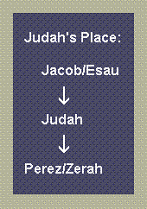
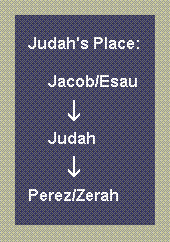
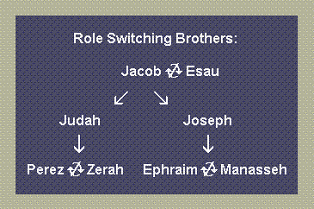
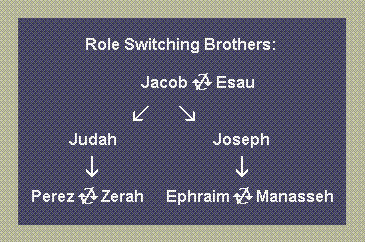
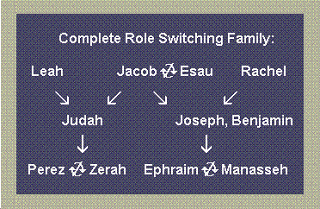
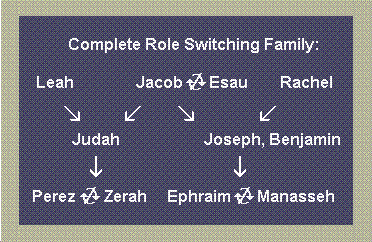
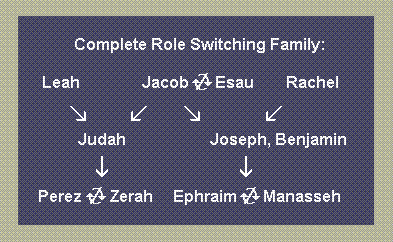
 Then the same day at evening, being the first day of the week, when the doors were shut where the disciples were assembled for fear of the Jews, came Jesus and stood in the midst, and saith unto them, Peace be unto you. And when he had so said, he shewed unto them his hands and his side. Then were the disciples glad, when they saw the LORD. Then said Jesus to them again, Peace be unto you: as my Father hath sent me, even so send I you. And when he had said this, he breathed on them, and saith unto them, Receive ye the Holy Ghost: whose soever sins ye remit, they are remitted unto them; and whose soever sins ye retain, they are retained.
Then the same day at evening, being the first day of the week, when the doors were shut where the disciples were assembled for fear of the Jews, came Jesus and stood in the midst, and saith unto them, Peace be unto you. And when he had so said, he shewed unto them his hands and his side. Then were the disciples glad, when they saw the LORD. Then said Jesus to them again, Peace be unto you: as my Father hath sent me, even so send I you. And when he had said this, he breathed on them, and saith unto them, Receive ye the Holy Ghost: whose soever sins ye remit, they are remitted unto them; and whose soever sins ye retain, they are retained. And many other signs truly did Jesus in the presence of his disciples, which are not written in this book: but these are written, that ye might believe that Jesus is the Christ, the Son of God; and that believing ye might have life through his name.
And many other signs truly did Jesus in the presence of his disciples, which are not written in this book: but these are written, that ye might believe that Jesus is the Christ, the Son of God; and that believing ye might have life through his name. 